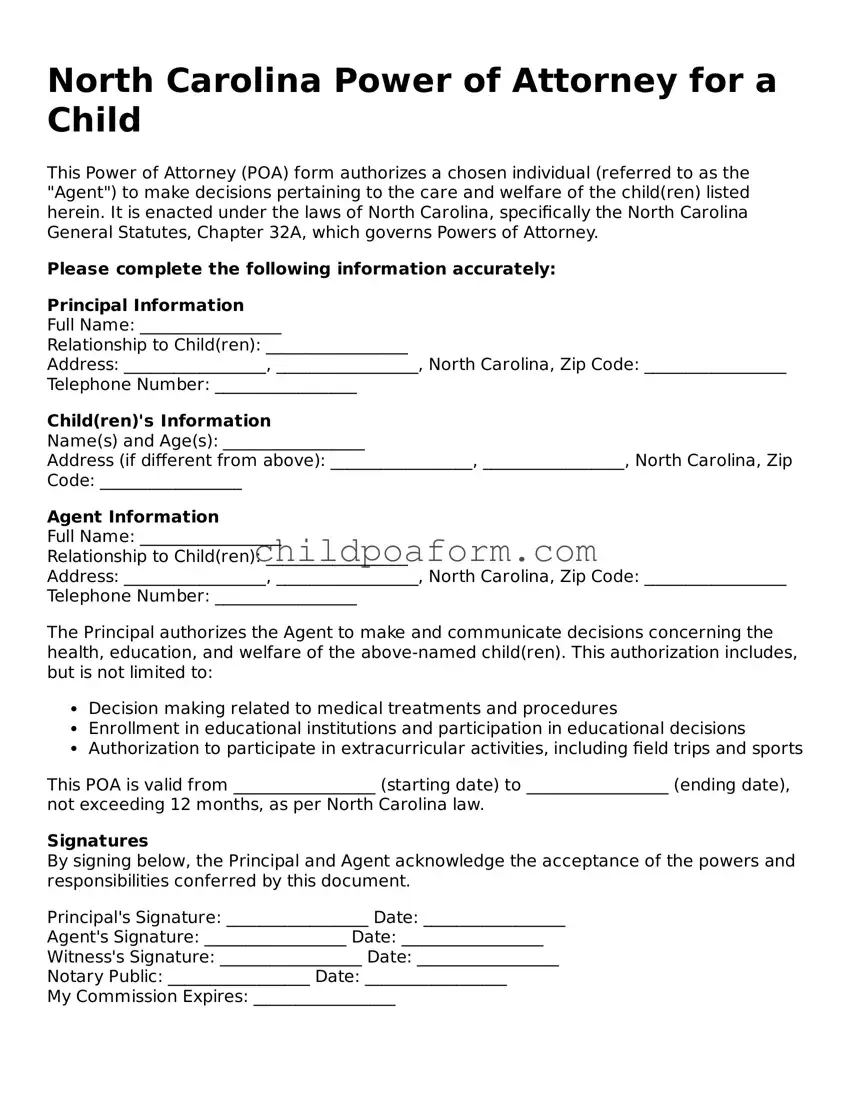Instructions on Utilizing North Carolina Power of Attorney for a Child
Filling out a Power of Attorney (POA) for a child in North Carolina is an important step in ensuring that a child's affairs can be managed by a trusted adult in the absence of the parent or legal guardian. This document grants an appointed individual the authority to make decisions on behalf of the child, ranging from educational to medical decisions. It is critical for those who seek to establish this legal arrangement to complete the form accurately and in compliance with North Carolina laws to ensure its validity.
Here are the steps needed to properly fill out the North Carolina Power of Attorney for a Child form:
- Download the Official Form: Start by obtaining the most current version of the Power of Attorney for a Child form specific to North Carolina. Ensure it is an official document recognized by the state.
- Gather Required Information: Collect all necessary information including the full legal names and addresses of the child, the parent(s) or current legal guardian(s), and the appointee (the individual receiving POA).
- Specify Duration: Clearly indicate the period during which the POA will be in effect. North Carolina law allows for a temporary transfer of authority not to exceed a period of one year.
- Define Powers Granted: Detail the specific powers being transferred to the appointee. This can include making educational decisions, medical treatment decisions, and the authority to manage financial matters for the child.
- Signatures: The form must be signed by the parent(s) or legal guardian(s) in the presence of a notary. Gather all parties involved to sign the document accordingly.
- Notarization: The document must be notarized to be legally binding. Ensure the notary public stamps it and fills out the notarial section.
- Distribute Copies: After the form is notarized, distribute copies to all involved parties, including the appointed POA, any institutions (such as schools or hospitals) where the authority will be exercised, and keep a copy for personal records.
- Review Annually: Although not a step in filling out the form, it’s important to review the POA annually to decide if it should continue, be modified, or terminated.
A comprehensive approach to completing the North Carolina Power of Attorney for a Child form is crucial for its effectiveness. Diligence in following these steps can provide peace of mind for the parent or legal guardian, knowing their child’s affairs will be competently managed in their absence. Careful consideration and accurate completion of the form will ensure the legal arrangement serves the best interest of the child.
